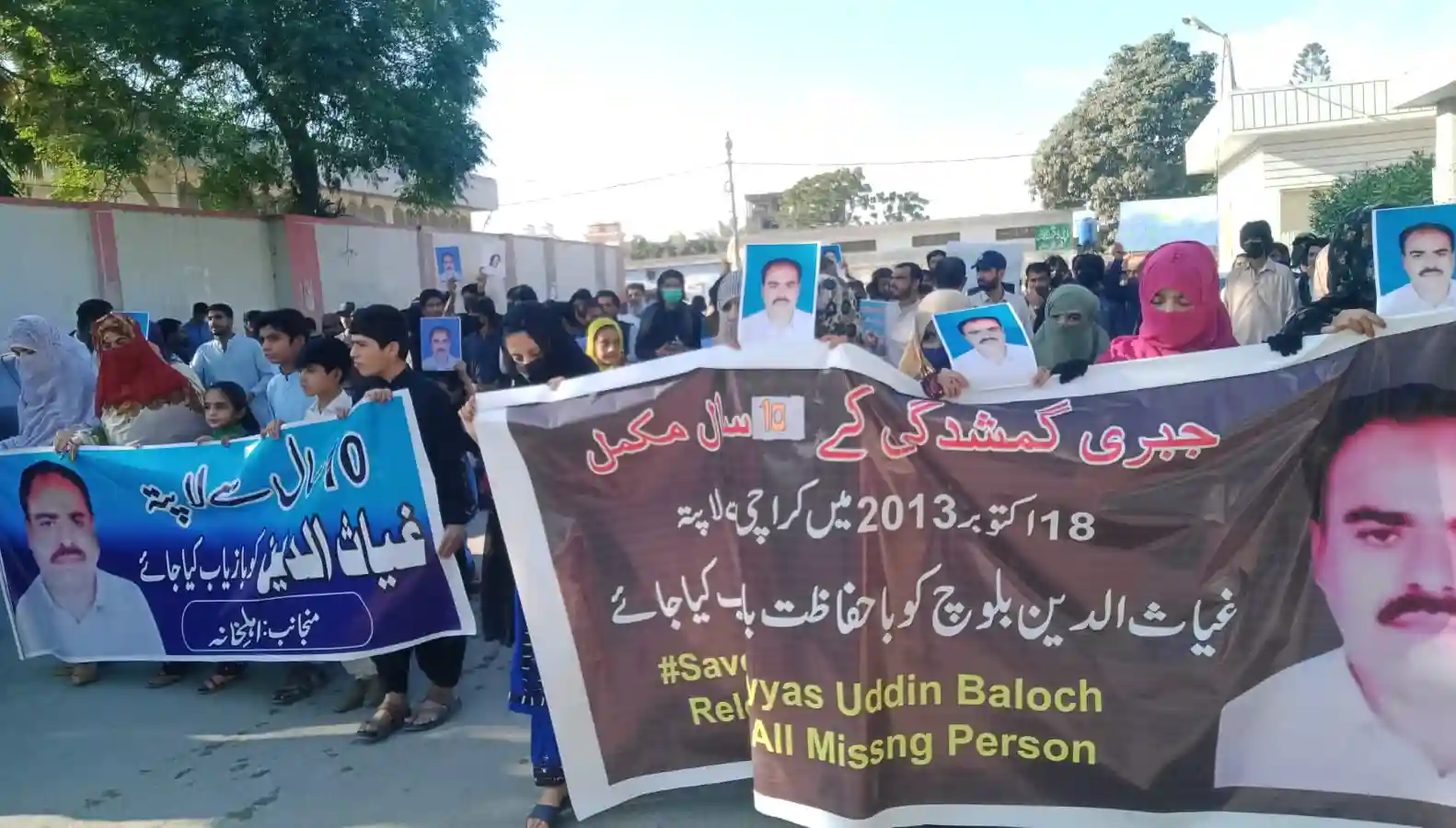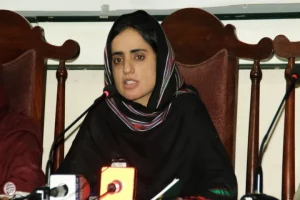There is an upsurge of videos by Baloch activists on Twitter. Most of the visuals—videos and photos—are about women carrying out rallies, protests and marches. Many show women staging sit-ins at the press clubs in provincial capitals of Balochistan and Sindh—Quetta and Karachi, while others show them holding placards, sloganeering and raising their fists.
Baloch women have taken up the struggle for their rights, enforced disappearances and murders of the menfolk.
#Baloch women are brutally tortured & beaten up for just standing up against injustice. #Pakistani forces must realise that while they may physically break a #Baloch,they’ll never be able to break our will to #FreeBalochistan from its illegal occupation.@Balochzaag@Hani_Baloch7 pic.twitter.com/0d95zWeqIO
— Sohrab Haider (@SohrabHaider7) January 3, 2023
We speak with Baloch activists to know more about how Baloch women have become such visible, and doughty, campaigners in the struggle for dignity, rights and, possibly an independent Balochistan.
One of the biggest issues with the women have been the “enforced disappearances”—a sensitive issue among many religious and ethnic minorities in Pakistan. Many families have seen numerous instances of their men being kidnapped by Pakistani spy and military personnel. With the menfolk in the torture cells of the Pakistani establishment, it is left to the women to protest for their missing family members.
آنسو گیس کے شیل ہمارے بچوں کے چہروں پر مارے گئے مظاہرین کی طرف سے ایک کوئی تھوڈ پھوڑ نہیں کی گئی بلکہ پاکستانی فورسز نے ہمارے گھروں میں گھس کر تھوڈ پھوڑ کی خواتین کی بے حرمتی کی ان پر تشدد کیا گیا
ہم نے آپ سے نوکری نہیں مانگی اپنے سمندر پر اپنا حق مانگا pic.twitter.com/lQVHLwXpgh— Pirdhan Baloch (@PirdhanB) January 5, 2023
With banners of protest and faces of the missing Baloch men and youth printed on posters, hundreds of women have been facing beatings by the Pakistani security forces on a daily basis. They take the courage from their families and inspiration from Karima Baloch—a young activist who was found dead in December 2020 by the lakeside in Canada.
Fired by Karima’s enthusiasm for an independent Balochistan, her admirers and followers took out a procession to remember their fiery leader a few days back.
Even after she is gone,her legacy inspires every #Baloch to fight for their rights. The murderers of #KarimaBaloch would have never imagined that their act would lead to such a situation.#PakArmy could only kill her, not her charisma. #FreeBalochistan @Hani_Baloch7 @Balochzaag pic.twitter.com/gkyLoustel
— Sohrab Haider (@SohrabHaider7) December 29, 2022
Influenced by the plight of her family members over a missing relative, Karima began her battle against the Pakistani State when she was in her twenties.
In her mysterious death, she joined the list of a handful of Baloch activists and journalists found dead on foreign soil. Before her, Sajid Hussain was found dead near the Uppsala River in Sweden, and in 2022 Saqib Karim was found dead on the seashore in Azerbaijan capital Baku.
Rashid’s disappearance and incommunicado detention has inflicted anguish and trauma on his mother and family. His family is organizing a demonstration in front of the Lasbela Press Club for his safe recovery. We request everyone to join pic.twitter.com/i2qj6ziBRN
— HR Council of Balochistan (@HRCBalochistan) December 24, 2022
One of the leaders of the Baloch National Movement (BNM) told India Narrative that the Baloch women have also been holding sit-ins about local issues in Gwadar port city. These issues range from seeking water supply in areas like Darbela, Ziarat, Machhi, Nagur, Pushkan and Jiwani to banning illegal foreign trawling in the sea on the Makran coastline.
غیاث الدین بلوچ سمیت تمام لاپتہ افراد کو بازیاب کیا جائے۔
#ReleaseBalochMissingPersons@BBCUrdu @antonioguterres @WGEID @UNHumanRights @UN @UN_Women @amnesty pic.twitter.com/W31o79COmn— Zeen.baloch ( Zeen Gul ) (@ZeenBaloch) January 6, 2023
Many women have been protesting for the release of fishing boats and vehicles seized by the Pakistani Coast Guard and Customs from the Baloch fishermen and traders. The women are also protesting for equal wages for employees from Balochistan and those from the other provinces working on the joint Pakistan-China project—China Pakistan Economic Corridor (CPEC)—the multi-billion infrastructure and transport corridor linking China to the Arabian Sea through Pakistan.
Also read: Is a watery grave for three Baloch activists a coincidence or murder?



















